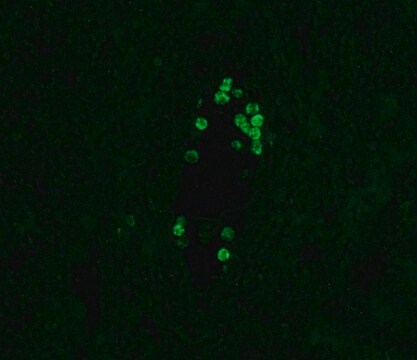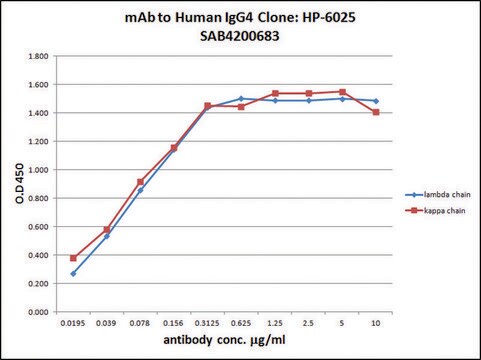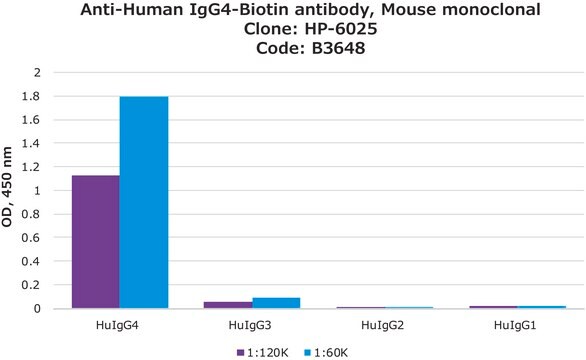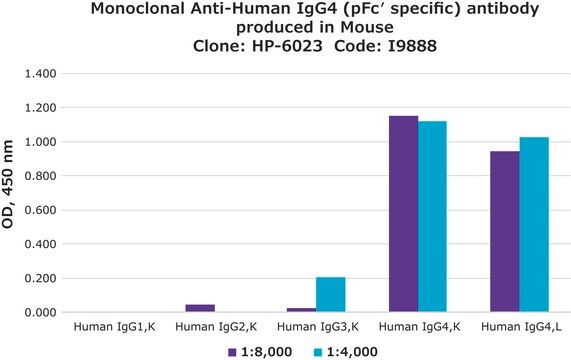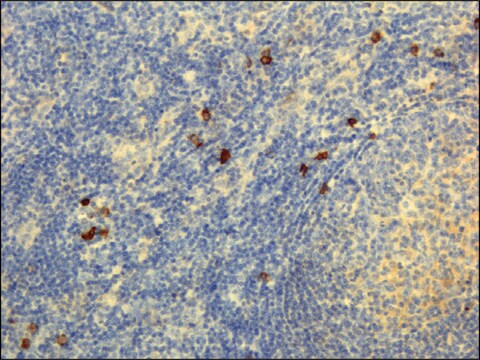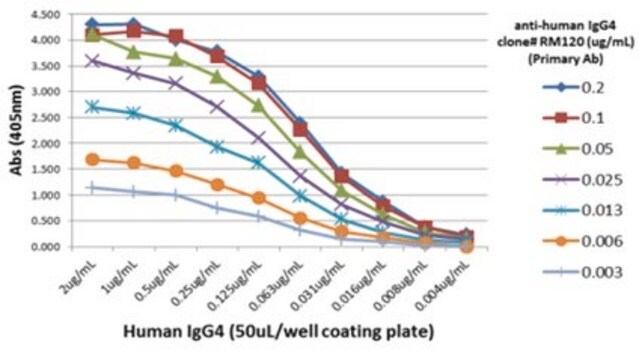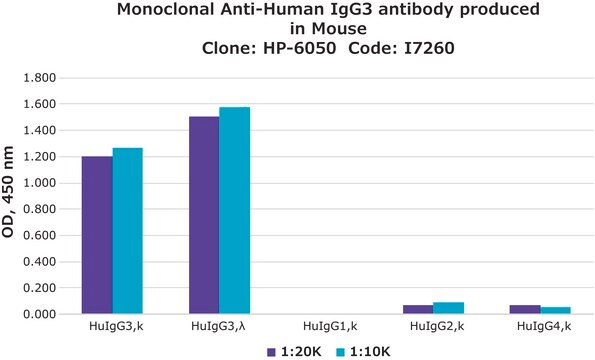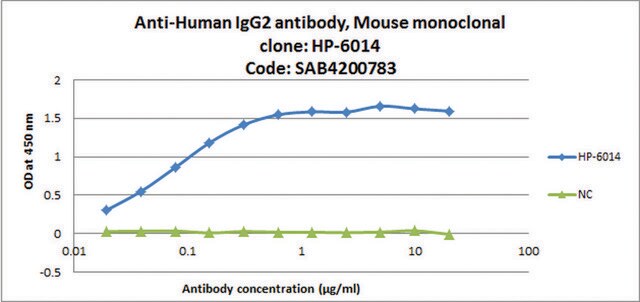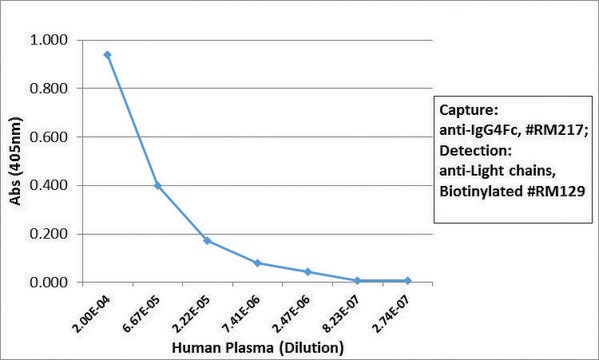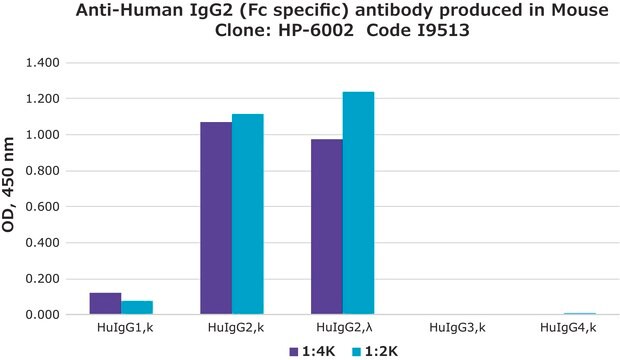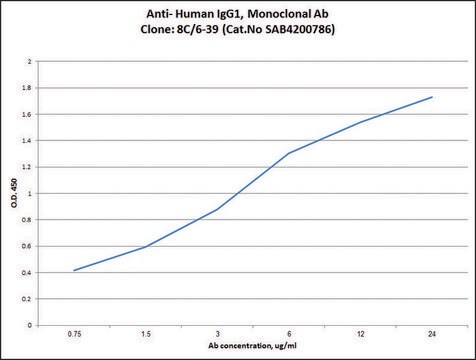I7385
Monoclonal Anti-Human IgG4 antibody produced in mouse
clone HP-6025, ascites fluid
Sinônimo(s):
Monoclonal Anti-Human IgG4
About This Item
Produtos recomendados
fonte biológica
mouse
Nível de qualidade
conjugado
unconjugated
forma do anticorpo
ascites fluid
tipo de produto de anticorpo
secondary antibodies
clone
HP-6025, monoclonal
contém
15 mM sodium azide
técnica(s)
immunofluorescence: suitable
indirect ELISA: 1:5,000
Isotipo
IgG1
Condições de expedição
dry ice
temperatura de armazenamento
−20°C
modificação pós-traducional do alvo
unmodified
Procurando produtos similares? Visita Guia de comparação de produtos
Descrição geral
Especificidade
Aplicação
Ações bioquímicas/fisiológicas
Exoneração de responsabilidade
Não está encontrando o produto certo?
Experimente o nosso Ferramenta de seleção de produtos.
Código de classe de armazenamento
10 - Combustible liquids
Classe de risco de água (WGK)
nwg
Ponto de fulgor (°F)
Not applicable
Ponto de fulgor (°C)
Not applicable
Certificados de análise (COA)
Busque Certificados de análise (COA) digitando o Número do Lote do produto. Os números de lote e remessa podem ser encontrados no rótulo de um produto após a palavra “Lot” ou “Batch”.
Já possui este produto?
Encontre a documentação dos produtos que você adquiriu recentemente na biblioteca de documentos.
Os clientes também visualizaram
Nossa equipe de cientistas tem experiência em todas as áreas de pesquisa, incluindo Life Sciences, ciência de materiais, síntese química, cromatografia, química analítica e muitas outras.
Entre em contato com a assistência técnica